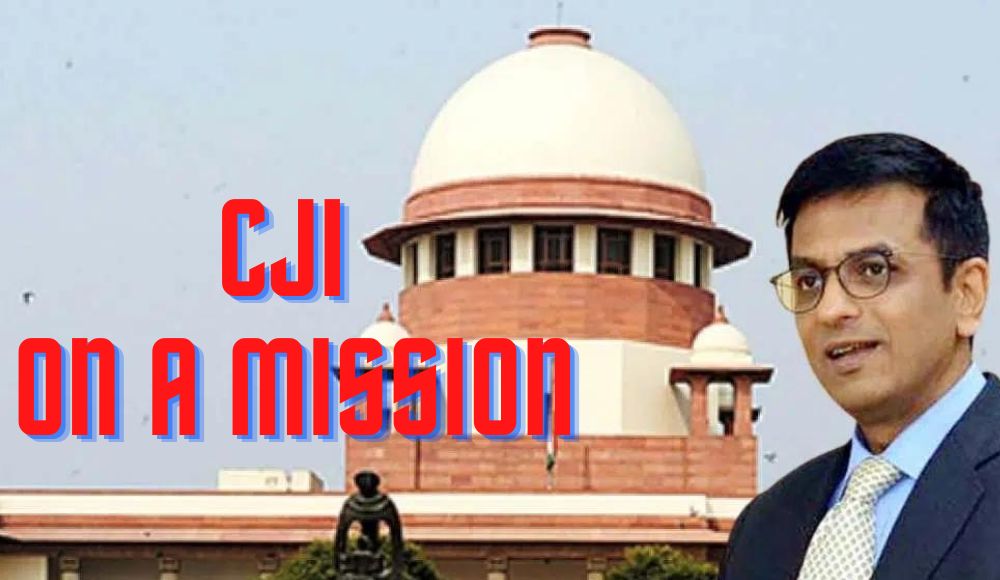In any Indian jail, most under-trial prisoners are those, who do not have adequate capacity to approach the higher judiciary for their bail. But the well-off accused with the support of famous lawyers hop from lower courts to higher courts to procure bail as early as possible.
This disparity has become a thing of despair for the commoners in India. The reluctance of lower courts to grant bail is on the rise. This contradicts the notion of ‘justice at doorsteps’. Commoners feel, at the lower courts ‘jail is the rule and bail is an exception’.
Newly appointed Chief Justice of India (CJI), DY Chadrachud, who is definitely progressive and liberal, has started his efforts to eradicate this problem by hitting at its root cause. He is trying to re-strengthen the dwindling faith of commoners in the judiciary.
Truthful vision:
The CJI had no hiccups to say that district judges are reluctant to give bails over fears of being targeted. Since bails are not granted at district levels, higher courts are getting clogged with a high number of bail cases, Justice Chandrachud added. He made this truthful remark at a function organised by the Bar Council of India (BCI) to felicitate him.
“And why judges at the grassroots are reluctant to grant bail, not because they don’t have the ability, not because the judges at the grassroots don’t understand the crime,” said the CJI. Then he added that there is a “sense of fear” among the judges at the grossroots that if they grant bail, “will somebody target me tomorrow on the ground that I granted bail in this heinous case”.
The CJI of India felt, this sense of fear nobody talks about will render our district courts toothless and our higher courts dysfunctional.
In the recent past, when he was asked, how will he ensure the trust of people in the judiciary, the CJI had said, “I will ensure trust of citizens not only through words but through my work”.
This recent statement of Justice Chandrachud about the reluctance of lower courts to grant bails seems to be part of his promised effort. He rightly felt that to get back the confidence of citizens, the judiciary itself should revitalize itself from the grassroots, which are the lower courts.
Need of time:
He has also stressed the need for judges to re-engineer themselves in the social media era. “With real-time reporting in the courtrooms today, every little word the judge says is put out on Twitter, or Telegram, or Instagram and you are constantly evaluated as a judge by what you say,” he said.
“Now if you have judges who decide to keep quiet and not say things when arguments are going on, that would pose a grave danger to the process of judicial decision-making, because the ability of a lawyer to meet an argument, to answer concerns of the judge, and to explore the mind of the judge or the line of reasoning of a judge is critical to the work which we do in courts,” he added.
In an era when every judicial decision is under scrutiny on the social media, Justice Chandrachud is too pragmatic in his approach. Instead of putting checks on social media scrutiny, he feels the social media era is here to stay. According to him, the way forward is for judges to refashion and re-engineer themselves.
He has rightly pointed out, that what sustains judicial institutions, in the long run, is the sense of compassion, a sense of empathy, and the ability to answer the cries of citizens. The CJI has already initiated his efforts for it. Let us hope, his efforts to revitalize the faith of commoners in the judiciary draws results as soon as possible.




Comments are closed.